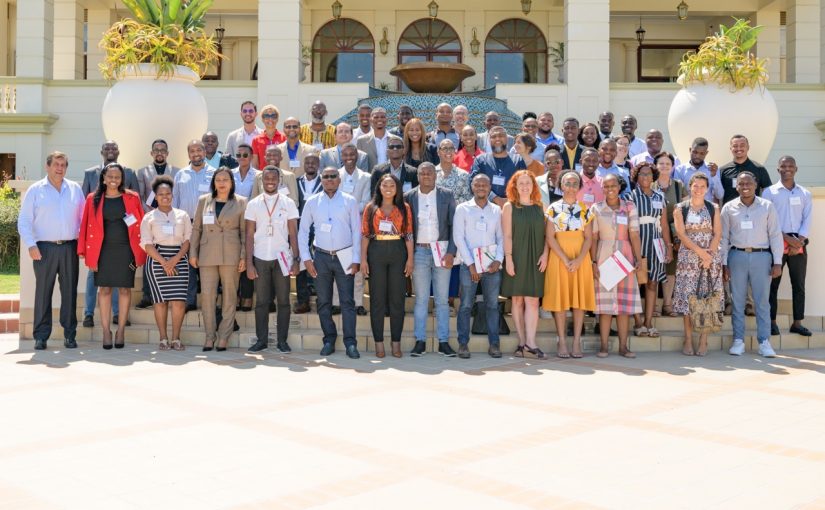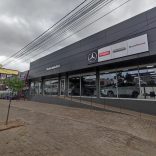Mozambique: Parliament approves VAT exemption on sugar, edible oils and soap until December, all in ...
Workshop on ‘Skills Development and Professionalism in the Maputo Transport Corridor’ – Press Release

Photo courtesy: German Development Cooperation (GIZ)
The German Development Cooperation (GIZ), organized last Wednesday (09/11), a Workshop on “Skills Development and Professionalism in the Maputo Transport Corridor” as part of the regional initiative VET Toolbox.
The event was attended by representatives from the Ministry of Transport and Communication, European Union, German Cooperation, NGO ESSOR, Mozambican Chamber of Commerce (CCM), representatives from Vocational Education Institutions and private sector members from the Transport and Logistics (T&L) industry.
During the opening session, the Head of Infrastructure, Investment and Private Sector of the European Union, Veerle Smet, said that there is a need to strengthen Human Resource and professionalism, as a way to ensure sustainable growth in the logistics sector. “The T&L sector is crucial for economic development and job creation due to the potential it has to attract new investments and to develop sectors such as Agriculture,” she stressed.
Aware of the need to improve competitiveness in the Maputo corridor, the National Director for Logistics and Development of the Private Transport Sector, Ambrósio Sitoe, who kicked off the workshop, said that the construction of a Logistics Training School is under evaluation in favour of infrastructural development, industrialisation, digitalisation and maximising gains over the country’s geographical location.
The workshop was based on two main panels, the first of which dealt with “Labour competencies needed to develop the Maputo Corridor: opportunities and challenges”, moderated by the CCM Senior Economic Adviser, Hipólito Hamela.
During the question-and-answer session, the central approach was the insertion of young graduates in the T&L industry. Contributing to this session were representatives from companies in the sector, such as DP World, Transportes Lalgy, Adicional Moçambique, and representatives from Government Institutions dealing with Vocational Education, such as the Vocational Education Authority and the Secretary of State for Technical and Vocational Education.
The second panel took an approach of “How to ensure the integration of MSMEs in the Transport and Logistics Value Chain in the Maputo Corridor” and was moderated by the SIR Group Advisor, Filipe Mabutana in a debate that had representation from Transitex, Appload, SBS and NAA Transportes e Serviços.
This group spoke about the challenges of MSMEs and the requirements to access opportunities, being paramount the need for MSMEs to train the people they work with, certify and digitalise the services, as a way to ensure quality and reach the big projects.
During the event, Mr. Pedro Monjardino presented the results of the study on the Mapping of Transport Companies in Mozambique, a study commissioned by the World Bank and co-financed by the European Union.
In her closing speech, the President of the Transport Department of CCM, Maysha Camal, said that the VET Toolbox project “Capacitar para Transportar”, will improve the services provided to the members of the organisation she represents as well as to the institutions operating in the sector.
VET Toolbox is a regional initiative at the African level implemented in 11 African countries by a consortium of European cooperation agencies. VET Toolbox is co-financed by the European Union and the German Federal Ministry for Economic Cooperation and Development (BMZ).
In Mozambique the project is implemented by GIZ-German Cooperation through the programme “Employment and Skills for Development in Africa (E4D)” in partnership with ESSOR, the Commercial Association of Beira (ACB) and the company Bolloré Logistics.
In Mozambique, the project is called “Capacitar para Transportar” and contributes to economic development and improvement of the investment climate in the cities of Beira and Maputo, focusing on: i) Preparing young people and women for the internship and employment opportunities available in the sector through training in employability, notions of T&L, Health and Safety at Work, Digital Skills, among others; ii) Institutional capacity building and labour insertion services in four Professional Education Institutions; iii) Training for T&L MSME managers to improve their own professionalization and have access to more business opportunities, thus creating more and better jobs iv) Creation of dialogue platforms involving Professional Education Institutions and companies from the T&L sector to create synergies and align the training of young people with the needs of the sector.












Leave a Reply
Be the First to Comment!
You must be logged in to post a comment.
You must be logged in to post a comment.